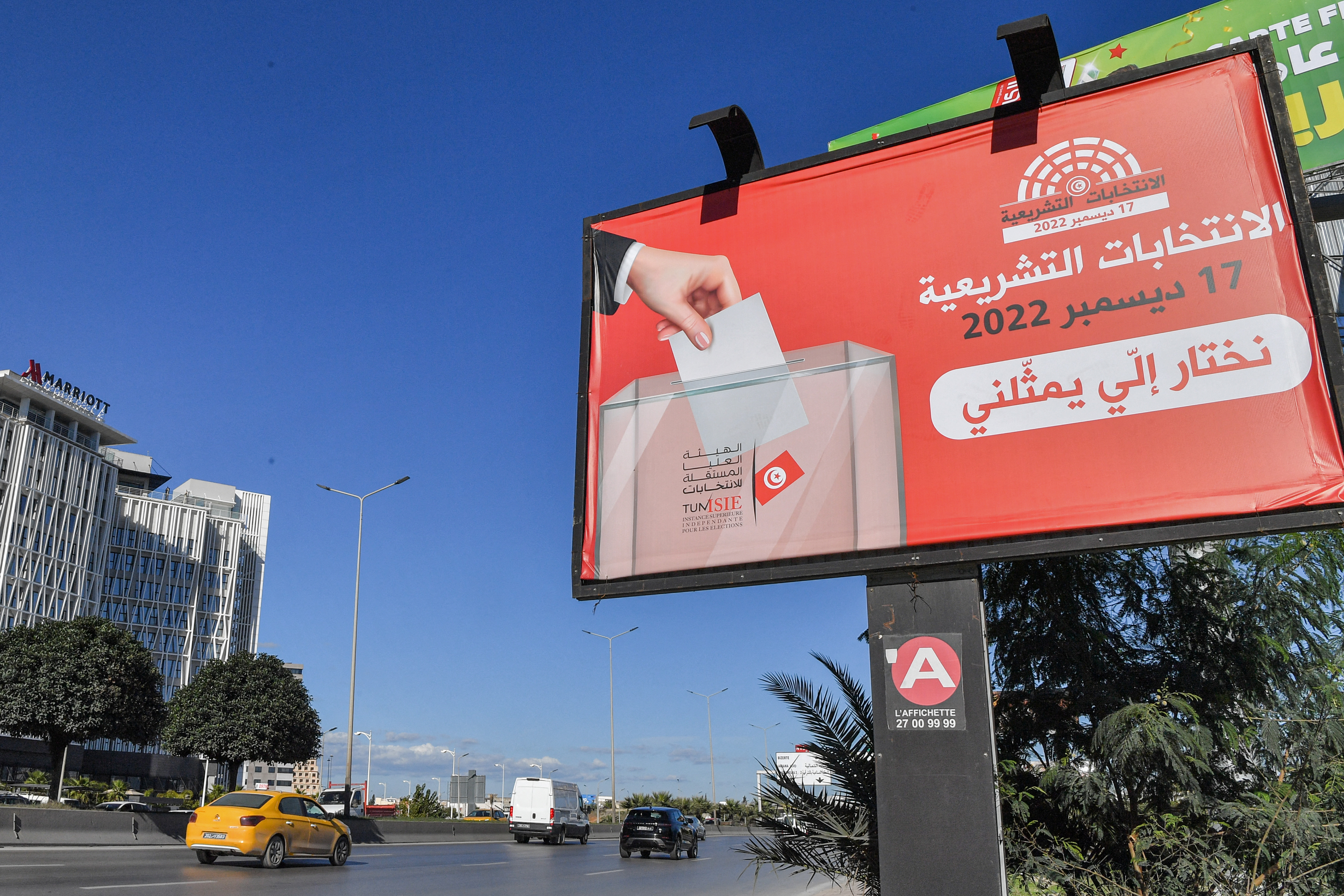
Tunisia’s most powerful trade union, the Tunisian General Labour Union (UGTT), has warned the country’s president that the second round of controversial parliamentary elections should be postponed to avoid chaos.
The UGTT’s statement on Thursday, which said that the new parliament will have no legitimacy, followed a record-low turnout in Saturday’s elections, when only 11.2 percent of eligible voters participated.
That lack of participation has led to further calls from the Tunisian opposition for President Kais Saied to step down.
“I was expecting that after low turnout, the president would say that he received the message and admit that the path was wrong … but he is going ahead with his plan,” Noureddine Taboubi, the head of the UGTT, said.
“It would be wise to postpone the second round to avoid chaos,” Taboubi said.
Saied, however, has said that turnout should only be judged after the second round of voting is held.
Saied had suspended an opposition-dominated parliament in July 2021, before changing the constitution to weaken the institution and make it subservient to the presidency, in what the opposition has labelled a “coup”.
The election process was also changed, with a party list system abandoned, and candidates not allowed to receive funding from any political party.
The UGTT, which has more than a million members, has neither aligned itself fully with Saied nor the opposition.
It initially backed Saied’s moves to suspend parliament but withdrew support after the president wrote a new constitution, which was passed in a low-turnout referendum in July.
The UGTT’s membership numbers make it extremely powerful, and it has previously paralysed the economy with its strikes, as well as playing a major role in the 2011 revolution.
There are now fears in Tunisia, and from the international community, that the country is sliding away from democratic rule, having initially been one of the few success stories of the Arab Spring.
Saied, however, has said that his moves have been necessary to fight back against a political elite he claims is to blame for corruption and Tunisia’s poor economy.
It was on that platform that the populist was able to win the presidency in 2019, but Tunisia’s economy has shown few signs of improving since then.
Saturday’s first round of parliamentary elections resulted in few conclusive results.
Runoffs will be held in most Tunisian regions in February after only 21 candidates secured victory, the electoral commission said this week, although it did not specify a date for the vote.







